Drama
General Books
Sort by:
by:
Gunnar Ollen
INTRODUCTION Strindberg's great trilogy The Road to Damascus presents many mysteries to the uninitiated. Its peculiar changes of mood, its gallery of half unreal characters, its bizarre episodes combine to make it a bewilderingly rich but rather 'difficult' work. It cannot be recommended to the lover of light drama or the seeker of momentary distraction. The Road to Damascus does not...
more...
by:
Alfred Hennequin
CHARACTERS. , with a night adventure. , Selwyn’s unwilling slave. , of the Kilkenny Irregulars. , Professor of Penmanship. , a boy in buttons. , Sam’s Wife. , Sam’s Daughter. , secretly married to Fred. , a parlor maid. .—At first as described in the “Scene,” afterwards in ordinary dress. .—Walking costume. .—Exaggerated military style. .—Eccentric old gentleman’s costume. and...
more...
by:
Bernard Shaw
ACT I It is after dinner on a January night, in the library in Lady Britomart Undershaft's house in Wilton Crescent. A large and comfortable settee is in the middle of the room, upholstered in dark leather. A person sitting on it [it is vacant at present] would have, on his right, Lady Britomart's writing table, with the lady herself busy at it; a smaller writing table behind him on his left;...
more...
SCENE I. THE DIET AT CRACOW. On the rising of the curtain the Polish Diet is discovered, seatedin the great senate hall. On a raised platform, elevated by threesteps, and surmounted by a canopy, is the imperial throne, theescutcheons of Poland and Lithuania suspended on each side. The KINGseated upon the throne; on his right and left hand his ten royalofficers standing on the platform. Below the...
more...
SCENE: Judge Dunfumy's Court. PERSONS: Judge Dunfumy, Officer Simpson and another, Jemima Flapcakes, Cliff Mullins, John Barnes, two lawyers, a clerk, a pretty girl and her escort. SETTING: Usual court-room arrangement, except that there is a large red arrow pointing off-stage left,...
more...
by:
Lady Gregory
ACT I Scene: A room in the King's house at Burren.Large window at back with deep window seat.Doors right and left. A small table and somechairs. Dall Glic: (Coming in with tray, which he putson table. Goes back to door.) You can come in,King. There is no one here. King: (Coming in.) That's very good. I wasin dread the Queen might be in it. Dall Glic: It is a good thought I had bringingit in...
more...
by:
Edith Oland
August Strindberg died at Stockholm On May 14, 1912, just ten days after the first of his plays given in English in the United States had completed a month's engagement. This play was "The Father," which, on April 9, 1912, was produced at the Berkeley Theatre in New York, the same little theatre that witnessed in 1894 the first performance in this country of Ibsen's "Ghosts."...
more...
ACT I. I. 1 Scene I. Enter Duke, , Gaoler, , and other Attendants. Æge. Proceed, , to procure my fall, And by the doom of death end woes and all. Duke. Merchant of Syracusa, plead no more; I am not partial to infringe our laws: The enmity and discord which of late 5 Sprung from the rancorous outrage of your duke To merchants, our well-dealing countrymen, Who, wanting guilders to redeem their lives,...
more...
IN THE SHADOW OF THE GLEN A PLAY IN ONE ACT SCENE.—{The last cottage at the head of a long glen in County Wicklow. Cottage kitchen; turf fire on the right; a bed near it against the wall with a body lying on it covered with a sheet. A door is at the other end of the room, with a low table near it, and stools, or wooden chairs. There are a couple of glasses on the table, and a bottle of whisky, as if...
more...
ACT I. On a ship at sea: a tempestuous noise of thunder and lightning heard. Mast. Boatswain! Boats. Here, master: what cheer? Mast. speak to the mariners: fall to’t, yarely, or we run ourselves aground: bestir, bestir. Exit. Enter Mariners. 5 Boats. Heigh, my hearts! cheerly, cheerly, my hearts! yare, yare! Take in the topsail. Tend to the master’s whistle. Blow, , if room enough! Alonso,...
more...


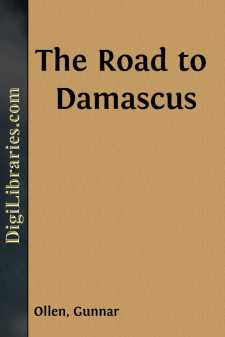
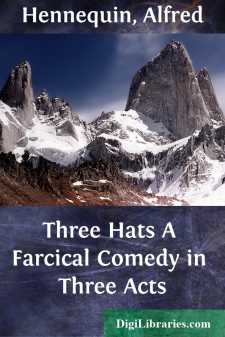
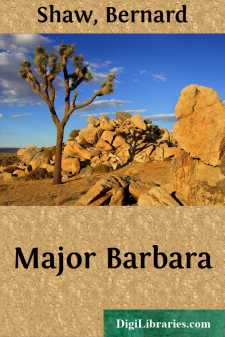
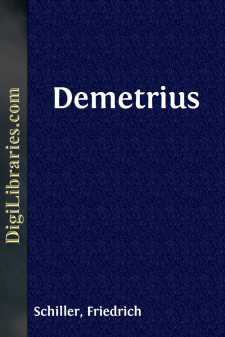

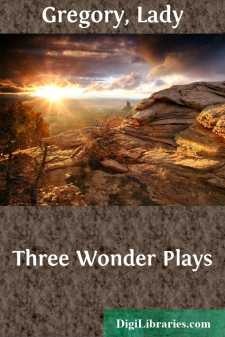
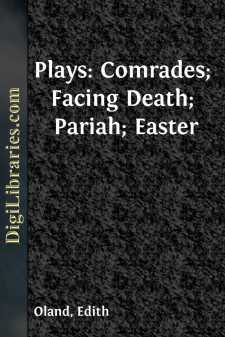
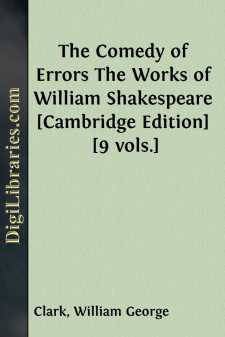
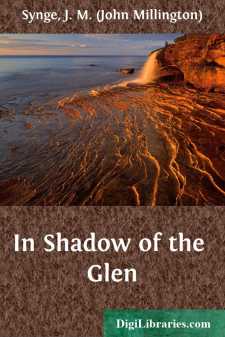
![The Tempest
The Works of William Shakespeare [Cambridge Edition]...](https://digilibraries-com.s3.eu-central-1.amazonaws.com/covers/fdca128c-4b81-436c-94b8-8b06b60a5f62.jpg)